During November, I’m turning this space over on occasion to adoptees who are flipping the script. Some of what you read in this series may be tough to take in, but I think the more we can listen to others’ viewpoints, the better we can understand the countless facets of adoption (and humanity for that matter).
Taking over the mic today is Lynn Grubb. Lynn is an adoptee, an adoptive parent, and adoption blogger/essayist/author/editor.
~~~~~
Today I share how being both an adoptee and an adoptive parent informs and motivates me to advocate for equality regarding state laws in the US. I speak from my adoptive parent viewpoint for the first time here at Lori’s blog. I credit #flipthescript for this recent change in thinking as I have come to know several other adoptees who have dual roles like me and who bolster my courage in wearing my other hat.
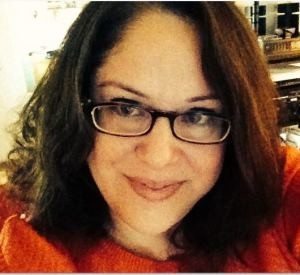 When I became an adoptive mom in 2005, I was aware, due to having grown up with virtually no true information about my own identity, that I needed to be extra careful in securing documents pertaining to my daughter’s original identity. I also was aware that I needed to be very careful with her legal rights to not only us (her adoptive family) but also her rights to her biological family. In our case, these two families overlap. Our adoption is what is known as a “kinship adoption,” when a family member of the child becomes the adoptive parent. In our family’s case, my daughter is not blood-related to me; however, she is blood-related to my husband.
When I became an adoptive mom in 2005, I was aware, due to having grown up with virtually no true information about my own identity, that I needed to be extra careful in securing documents pertaining to my daughter’s original identity. I also was aware that I needed to be very careful with her legal rights to not only us (her adoptive family) but also her rights to her biological family. In our case, these two families overlap. Our adoption is what is known as a “kinship adoption,” when a family member of the child becomes the adoptive parent. In our family’s case, my daughter is not blood-related to me; however, she is blood-related to my husband.
Many hear the term “adoptee rights” thrown around but aren’t exactly sure what it means, as the general public tends to be unaware that adoptees even need rights. I was chatting with an uber-smart engineer at a party last summer, a man who who knows a little bit about every topic under the sun. He went silent when I explained the amending/sealing process of adoptees’ original birth certificates. This brilliant man who always had something to say was dead quiet and wore a look of confusion when I explained how the law works differently for adopted people. (I am starting to think I have an odd effect on people at parties!)
The Adoptees’ Bill of Rights
I recently found this handy list at the American Adoption Congress to explain specifically what adoptee rights are.
- We have the right to dignity and respect.
- We have the right to know we are adopted.
- We have the right to possess our original birth certificate.
- We have the right to possess all of our adoption records.
- We have the right to full knowledge of our origins, ethnic and religious background, our original name and any pertinent medical and social details.
- We have the right to updated medical and social history of our birth parents.
- We have the right to personal contacts with each of our birth families, as all other humans.
- We have the right to live without guilt toward any set of parents.
- We have the right to treat and love both sets of parents as one family.
- We have the right and obligation to show our feelings.
- We have the right to become whole and complete people.
- We have a right and obligation not to violate the dignity of all people involved in the adoption triad and to carry our message to all adopted children who still suffer.
What Happens to Your Adopted Child’s Birth Certificate
In case you are not familiar with the process, here’s a primer.
Biological parents in the US receive a factual birth certificate with their names and the child’s name on it shortly after the child’s birth. Some will contain a father’s name and others will not, but the birth certificate will always have the mother’s and child’s name or if the child was not named, it might say, “Baby Boy Jones.”
What many people do not understand is that once an adoption finalization takes place — 6 months or even 6 years after a child’s birth — a new amended birth certificate with the names of the adoptive parents replaces the original one with the biological parent(s) names. This new amended birth certificate is the document the adoptee carries with him for life, also known in adoptee circles as a “legal fiction.” It is fiction to list adoptive parents as if they gave birth, even in step-parent and kinship adoption.
So yes, my daughter, like other adoptees, has two birth certificates. Her name is the same on both of them, but my husband’s and my names replace her biological mother’s name on the amended one.
Once the amended birth certificate is created, the original is then sealed by the state vital statistics office. The amended version is the only one ever available to that child for the rest of his life. In most states, adopted adults can almost NEVER have a copy of the original version.
State laws are slowly changing but in the meantime, this is what I recommend to current and future adoptive parents:
Insist that your attorney provide you with a copy of the child’s original birth certificate. A copy is available prior to adoption finalization.
Once the adoption is final, it is too late and it may be sealed for the lifetime of your child. Even if you are taking part in an open adoption and know your child’s biological parents, I still strongly urge you to get a copy of this precious document. Think long term about how this document holds personal and emotional significance to not only the adopted person, but to his/her future descendants.
If you are thinking to yourself, “Well, shoot – it’s too late now!” –- I have some other options for you.
Research the laws in your state and see if original birth certificates are open and available to your child when he reaches the age of majority. The American Adoption Congress has a handy list to make this easy for you. If yes, make that information available to your child. If no, contact your representatives and legislatures and ask them to support a bill to allow access. Your children and grandchildren may thank you one day.
In my home state of Ohio, this opening of adoptee birth certificates for those born 1964-1996 happened March 20, 2015. I was there for the big celebration in Columbus and was in awe at learning the details of how this all came together. One of the representatives backing the bill was an adoptee himself. Ohio Right to Life and the Ohio Catholic Conference, formerly anti-adoptee rights, came on board in support with Adoption Network Cleveland. Below is a documentary about how adoptee rights advocacy began with Betsie Norris, who was able to access her own OBC but thought it unfair that other adoptees could not. Unbeknownst to her, her very own father had helped put these birth certificate restrictions in place!
As an adoptee and adoptive parent, I urge you to advocate for your child’s right to his/her original identity. Even in the age of open adoption, the laws have not caught up to the realities of the blended family, the need for medical history, and answers about origins. We all deserve to have equal rights and adoptees should not be discriminated against nor stigmatized.
Protecting the original identities of adoptees will lead to a more ethical, transparent future for adoption.
~~~~~
Lynn Grubb is a closed-era adoptee and parent by marriage, biology and adoption. She enjoys writing about the complexities of adoption at her blog and contributing to adoption anthologies that give voice to the adoptee perspective. Her recent anthology, The Adoptee Survival Guide: Adoptees Share Their Wisdom and Tools, is a collaboration of 30 adoptee authors sharing their different perspectives living adoption. Lynn lives in Dayton, Ohio with her loving family.
UPDATE: For more on the opening of Ohio’s birth records, see Lynn’s post on The Lost Daughters.
~~~~~
Other Posts in the #flipthescript Series:
- 1: Why Are Adoptees Doing It?
- 2: Whose Script? Whose Voice?
- 3: Who is Best Placed to Talk About the Adoption Experience?
- 4: Someone Profited From My Adoption But It Wasn’t Me
- 5: Adopters: Want Trust? Give Truth.
- 6: Adoptee Rights Begin at Birth
- 7: Hold On
- 8: Adoptees Are In Reunion Whether They’re Searching or Not
- 9: The Healing Power of Open Adoption
- 10: I Guessed My Birth Mother’s Name
- 11: Abuse to Adoption to Addiction to Affirmation
- 12: A 1970s Adoption Story
- 13: Adoptee Healing & Hope
- 14: Adoption & Eating Disorders
- 15: In Adoption & Suicide

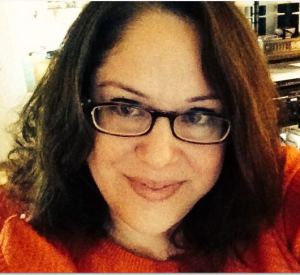
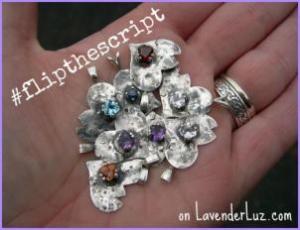
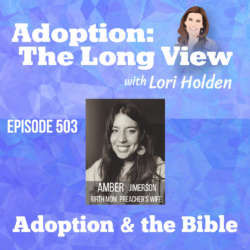
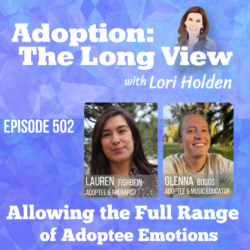
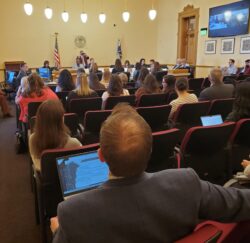
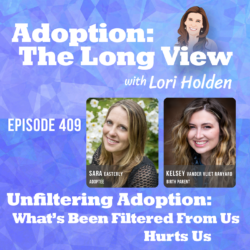
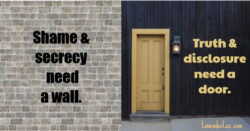
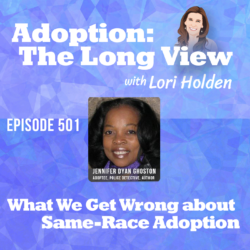
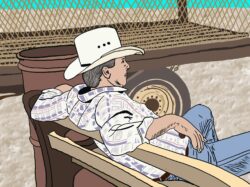
5 Responses
Should be a national law giving all adults the right to their original birth certificate if wanted.
I too am amazed at the number of intelligent people who simply have no idea how adoption works. Thanks for describing the reality of original and amended birth certificates.
I’d like to highlight one point of your description of adoptee birth certificates. The original birth certificate is not sealed when a child is relinquished. Although that seems clear enough, it carries special weight by confirming that no one’s identity is sealed at relinquishment. That one detail confirms that no promise of anonymity was ever offered to birth parents. The original birth certificate is sealed only when the adoption becomes final. Thank you for highlighting the importance of adoptive parents requesting the original birth certificate while they still can.
Another oft-overlooked fact of sealed records: In the event that an adoptee is “returned”, the amended birth certificate becomes sealed and the original birth certificate is reinstated.
Thanks Torrejon for pointing out that no promises of anonymity were given by the law . If a child is relinquished and then never adopted, their original birth certificate remains intact.
Loved this!
I’m an adoptee who back in the late 1970’s when my adoptive father (only father) urged that I search had to explain to him that I wasn’t entitled to my own birth certificate
He gave me everything the lawyer (a cousin who often wasn’t on the “right” side of the law but was always good) had given him, and I found my original birth certificate.
Did I mention my father was a certified genius who went to college on math and basketball scholarships.
He was obtuse and so is (NYS) the law
I am a birth mother who, from day one, tried to do everything I could do that my daughter could have any access she wanted to any record. (MD 1970’s). As laws changed, I’d go the the adoption agency and sign paperwork. However, when my daughter went to retrieve her files, she was told that the files were not hers but mine, therefore private. It was a nightmare. My daughter and I reunited a year ago and I’ve been able to give her what was given to me…. it no health records of the first 3 months of her life were there.
I’ve been told that I’m somewhat of an anomaly…. that many birth parents, especially from the 1950’s-1970’s didn’t want to be found. They were shamed into the adoption process because they were ashamed to be an “unwed mother” and they were told to move on after the adoption. (Hell, I was told to move on and forget about the whole “unfortunate event.”). So what about them? Is there a way to both give every adoptee adult the information she or he wants and needs and deserves and protect a birth mom who isn’t ready to have her information revealed?